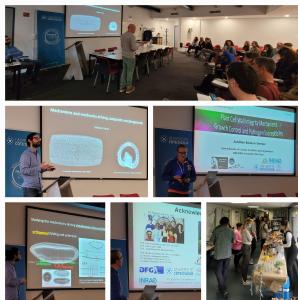Académie d'Excellence "Complexité et diversité du vivant"
Nucleic acid sensing and innate immunity - Academy 4 Seminar Series #19 - Le Galet CHU PASTEUR NICE - October 21st, 2025
- Research
- Science and society
- IDEX
- International
- Health
- Partnerships
- Education
on the October 21, 2025
Campus Pasteur

On the 21st of October 2025 from 9:30 am to 12:30 pm, in Le GALET Amphitheater, took place the 19th session of the IdEx Academy 4 seminar series entitled "Nucleic acid sensing and innate immunity in cancer and ageing".
Thank you to the speakers and attendants !
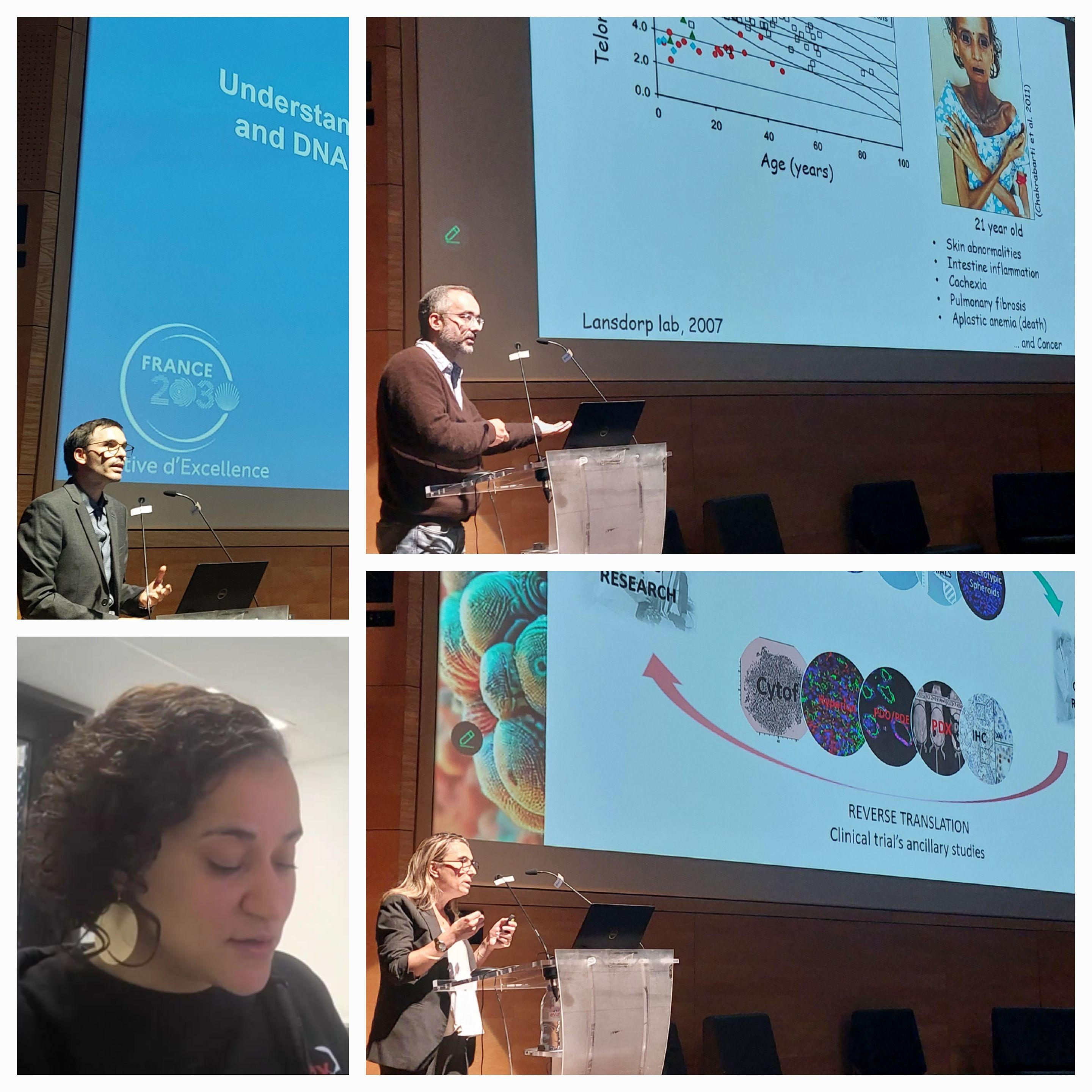
PROGRAM :
9:30 am - Welcome
9:40 am - Talk 1
"Understanding the molecular links between inflammation and DNA replication stress in senescence and cancers"

- Hervé TECHER, PhD
-
Chair of Professor Junior, Team Leader
Université Côte d’ Azur / IRCAN / Campus PASTEUR CHU NICE FRANCE
Genomic Instability in Human Pathology and Aging Website: https://www.ircan.org/research/teams/herve-techer/
Abstract:
The genome of eukaryotic cells is particularly at risk during the S phase of the cell cycle, when megabases of chromosomal DNA are unwound to generate two identical copies of the genome. This task is executed by thousands of micro-machines called replisomes, acting at fragile structures called replication forks. This presentation covers our current understanding of the molecular mechanisms connecting the response to DNA replication stress to the release of small DNA fragments into the cytoplasm, activating a pro-inflammatory response by the cGAS-STING pathway. Genomic instability and fork fragility come therefore at a price, which is the activation of a pro-inflammatory response that has both positive and negative impacts on the fate of stressed cells. One of the positive outcomes is that DNA damage induced-inflammation can be used in cancer therapies to boost anti-tumor immunity. However, we also have recently shown that cGAS-STING signaling and interferon response can generate replication stress and promote stable proliferation arrest, the so-called senescence. These recent advances have broad implications for the understanding of senescence, of cancer initiation and to improve cancer therapies.
Biography:
Hervé TECHER (HT) is a recipient of a co-funding from the Academy 4 in 2024 for new biology research teams setting up on the French Riviera. HT earned a PhD in Molecular and Cellular Biology (in 2012) under the direction of Pr Michelle DEBATISSE (Institut CURIE, PARIS, FRANCE), from the University Pierre et Marie CURIE (now SORBONNE University, PARIS, FRANCE). Following his PhD, HT has been mentored by Pr Vincenzo COSTANZO (2013-2018, IFOM, MILAN, ITALY) and then Dr Philippe PASERO (2019-2023, IGH, MONTPELLIER, FRANCE). He is now Chair of Professor Junior and Team Leader in IRCAN, Université Côte d'Azur (NICE, FRANCE). His research interests are DNA replication, maintenance of genome stability and cytosolic DNA sensing, notably in the context of senescence and Human pathologies. HT teaches molecular and cellular biology, oncology, molecular pathology at all levels in Université Côte d’Azur. HT is an emerging leader in the DNA replication stress-response and has contributed to understand the molecular links between genomic instability and activation of IFN-response in senescence and autoinflammatory diseases. His team focuses on understanding the pathological impact of inflammation on genome stability. HT’s research is funded by the French government through a CPJ-ANR, from an Emergence of Cancéropôle PACA.
--------------------
10:00 am - Talk 2
"Shaping of innate immune responses through the crosstalk between DNA damage response and DNA sensing pathways"
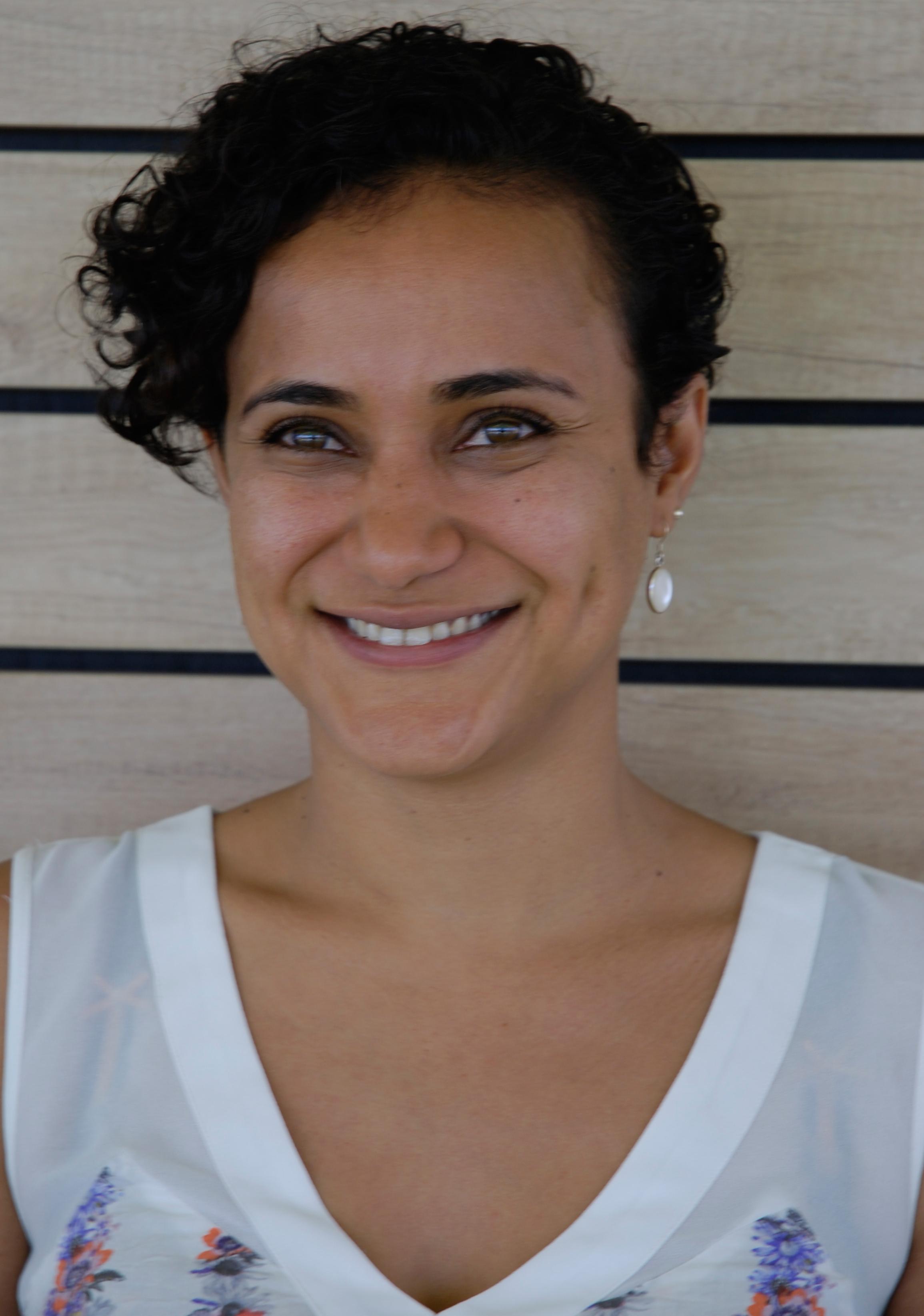
- Nadine LAGUETTE, PhD
-
CNRS Researcher
Director of the “Molecular Bases of Inflammation” Team
Institute of Human Genetics (IGH) – MONTPELLIER FRANCE
Abstract:
Cytosolic double-stranded DNAs (dsDNAs) are potent immune-stimulatory molecules that activate inflammatory pathways in numerous human pathologies. A central mechanism for the detection of cytosolic dsDNA involves the cyclic GMP-AMP synthase (cGAS), which produces the 2’3’-cGAMP cyclic dinucleotide (CDN) to activate the Stimulator of Interferon Genes (STING), thereby triggering type I Interferon (IFN) responses. Although 2’3’-cGAMP is a key rate limiting second messenger in the activation of this pathway, there is, to date, no mechanism described to regulate its level in the cytosol. Our recent work identifies the DNA-dependent protein kinase catalytic subunit (DNA-PKcs), a key player in DNA double-strand break repair, as a regulator of intracellular 2’3’-cGAMP. We show that DNA-PKcs directly binds 2’3’-cGAMP in its catalytic domain, reducing its bioavailability for STING activation. This process is accompanied by the inhibition of DNA-PKcs catalytic activity, which may come at the expense of deficient DNA repair. Furthermore, contrary to other mechanisms that regulate extracellular 2’3’-cGAMP levels, we show that DNA PKcs can also act on the bacterial 3’3’-cGAMP to reduce its capacity to activate STING. The implications of this regulatory mechanism on inflammatory responses as well as DNA repair mechanisms will be discussed.
Biography:
After completing a thesis in cellular biology in 2008 at what is now the University of Paris, Nadine LAGUETTE did postdoctoral work at the Institute of Human Genetics (IGH) in Montpellier. In 2012, she was recruited as a CNRS research fellow at the IGH's molecular virology laboratory. Three years later, she created her own team dedicated to studying the molecular basis of inflammation. In 2021, Nadine LAGUETTE was promoted to CNRS research director. She joined the Institute of Molecular Genetics in Montpellier (IGMM) in 2023 to continue her work on inflammatory mechanisms in different pathophysiological contexts. For a recent biography, see: https://www.horizon-europe.gouv.fr/nadine-laguette-chercheuse-en-immunologie-au-cnrs-35207
"During my thesis and postdoctoral studies, I focused on the interaction between host cells and the human immunodeficiency virus (HIV), the causative agent of AIDS. This allowed me to identify intracellular mechanisms that prevent viral replication, particularly by triggering inflammatory responses. Inflammation is a complex reaction that is necessary for eliminating pathogens and repairing tissue damage. However, when it is not properly orchestrated, it paves the way for many human diseases (autoimmune diseases, cancers, metabolic diseases, etc.). My team and I are now interested in the mechanisms that regulate inflammatory responses in order to better understand the pathophysiological consequences of their dysregulation. "
--------------------
10:50 am - Talk 3
"Telomere shortening triggers cGAS-STING causing systemic inflammation and cancer in zebrafish"
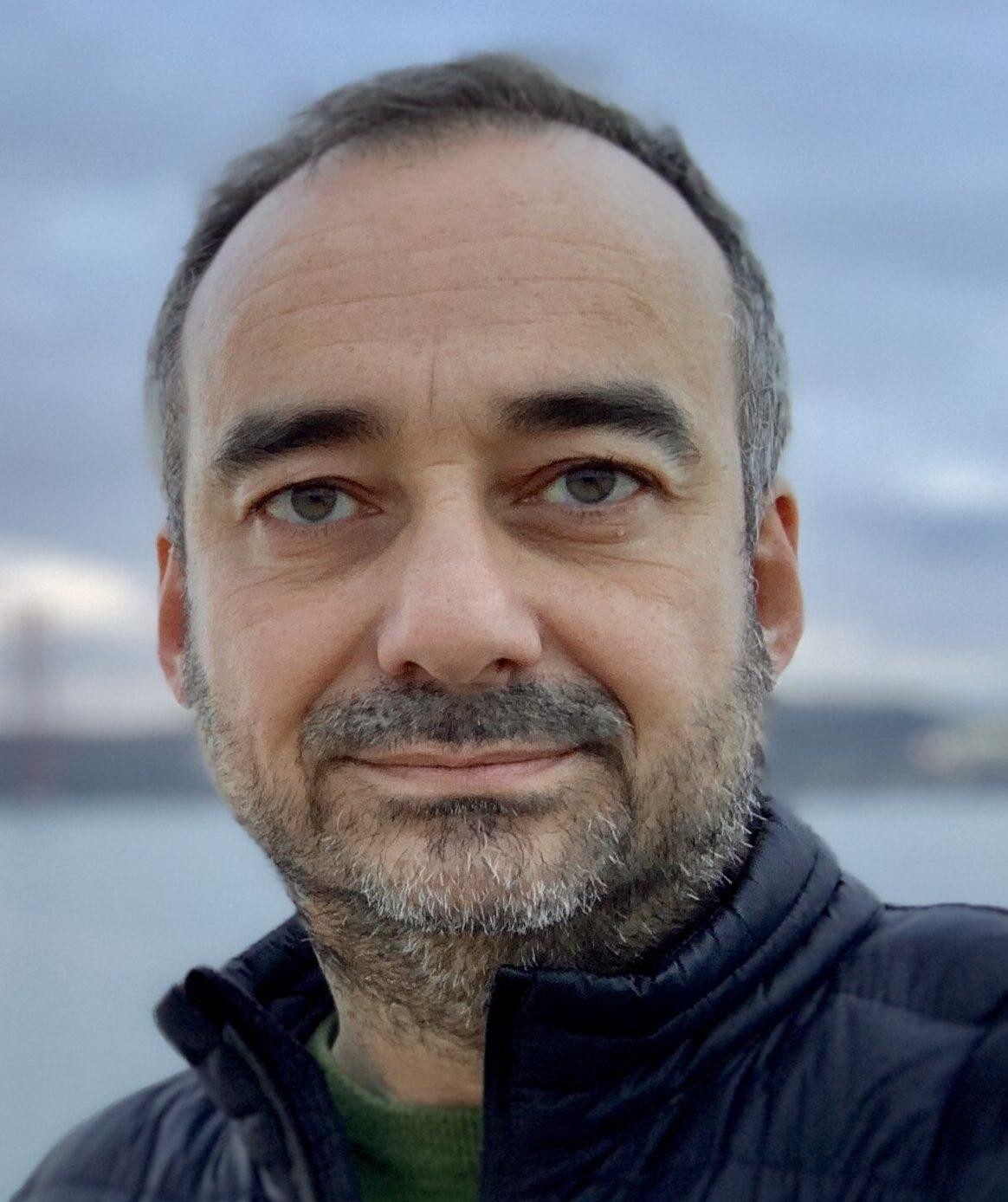
- Miguel Godinho FERREIRA, PhD
-
Research Director at CNRS
Research Laboratory on Telomere Shortening in Cancer and Aging
Université Côte d’ Azur / IRCAN / Campus PASTEUR CHU NICE FRANCE
Abstract:
Telomere shortening is a hallmark of aging, triggering DNA damage responses that activate p53, leading to apoptosis or cellular senescence. To study its effects at the organism level, we use zebrafish, a model that replicates human telomere erosion during aging. Telomerase-deficient zebrafish (tert mutants) exhibit premature aging, including reduced fertility, cachexia, increased inflammation, and age-related diseases, such as cancer. We found that the cGAS STING pathway plays a central role in these processes. In tert mutants, cytosolic DNA activate cGAS-STING, leading to type I interferon-driven inflammation, including TNFα, IL1-β and ISG15 expression, in multiple organs. Despite similar telomere lengths between sting tert and tert single mutants, the absence of cGAS-STING activation fails to up-regulate p53 protein, resulting in reduced senescence and inflammation. Unexpectedly, sting tert zebrafish have reduced spontaneous cancer incidence when compared to tert mutants. Consistently, Sting inhibition by H-151 of senescent zebrafish xenografts (aka avatars) leads to diminished p53 signalling and decreased metastatic progression. Thus, cGAS-STING has a positive role in cancer incidence upon telomere shortening in aging organisms. These findings challenge a broad use of STING agonists in cancer therapy. While cGAS-STING agonists have been validated for immunotherapy of established tumors, in an aging microenvironment, cGAS-STING activation can drive chronic inflammation and increased tumorigenesis. Our results suggest that targeting cGAS-STING therapeutically requires careful consideration of tumor stage and immune context.
Biography:
Miguel Godinho FERREIRA is a recipient of a co-funding from the Academy 4 in 2019 for new biology research teams setting up on the French Riviera. Miguel Godinho Ferreira is a leading expert in telomere biology, DNA damage responses, and senescence, with research spanning fission yeast and zebrafish. Since 2006, he has led independent research teams, first at the Instituto Gulbenkian de Ciência (Portugal) and later, in 2017, as Directeur de Recherche at the Centre National de la Recherche Scientifique (France). Awarded the HHMI International Early Career Scientist Award in 2012, he pioneered the use of zebrafish as a vertebrate model for telomere biology, uncovering how telomere shortening drives aging and cancer. His research demonstrated that gut-specific telomerase expression mitigates systemic aging, benefiting distant organs. He also revealed that telomere shortening fosters a pro-inflammatory microenvironment that promotes cancer with age. Using transgenic zebrafish, he aims to suppress telomere dysfunction in order to enhance tissue regeneration and mitigate age-related diseases, particularly cancer.
--------------------
11:20 am - Talk 4
"The STING-ATF3/type I IFN crosstalk: a potential target to improve the anti-tumor immunity in chemotherapy-treated urothelial carcinoma."
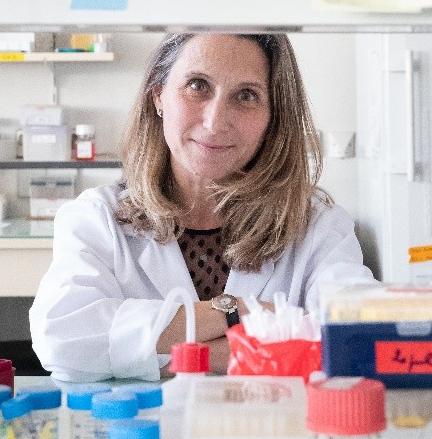
- Céline GONGORA, PhD
-
CNRS research director and heads the “Drug resistance and new cancer therapies” team at the Montpellier Cancer Research Institute (IRCM INSERM) Campus Val d’Aurelle MONTPELLIER FRANCE
Abstract:
Colorectal cancer (CRC) is one of the leading causes of cancer-related death worldwide, but its treatment is limited by the emergence of resistance, including to oxaliplatin. In this context, we recently showed that the combination of oxaliplatin and ATR inhibition (VE-822) (Vox combination) is synergistic and may have a potential therapeutic effect in metastatic CRC. Here, using organoids and orthotopic syngeneic mouse models we showed that the Vox + anti PD-1 antibody combination completely cured tumor-bearing mice and protected them from a rechallenge. Vox was associated with a reduction of tumor-infiltrated neutrophils, CD206+ macrophages and regulatory T cells. Vox also induced a deep depletion of blood neutrophils and led to the emergence of a Ly6C+ PD-1+ CD8+ T cell population in the blood and spleen of tumor-harboring mice. These cells were proliferating and expressed IFN-gamma, CD62L, CXCR3 and Eomes. Moreover, the proportions of tumor antigen-specific T cells and of CD122+ BCL6+ T cells, which shared phenotypic characteristics with stem-like CD8+ T cells, were increased in treated mice. Altogether, our findings suggest that the Vox + anti-PD-1 antibody combination might improve survival in patients with metastatic and treatment-refractory CRC by acting both on cancer cells and CD8+ T cells.
Biography:
After completing her PhD in cellular and molecular biology in Montpellier, Céline Gongora completed a postdoctoral fellowship in the USA at the prestigious NIH (National Institute of Health) laboratories in Bethesda. On her return to France, she worked on colorectal cancer, and in particular on chemotherapy resistance. Today, her research focuses on solid cancers, in particular digestive cancers (colorectal and pancreatic) and urological cancers (prostate, bladder and kidney), and aims to develop new therapeutic strategies to overcome resistance to anticancer drugs. The aim of this work is to carry out research that can rapidly benefit patients, and therefore to aim for clinical trials thanks to the interdisciplinarity of the team, which includes researchers, pharmacists, physicians and biologists.
--------------------
12:30 pm: Discussion and buffet hosted by the Academy 4
ORGANIZERS:
Academy of Excellence 4 "Complexity & Diversity of the Living Systems"
PARTNERS
Graduate School and Research LIFE - Life and Health Sciences
Graduate School and Research HEALTHY - Health Science Ecosystems
Academy of Excellence 5 "Human Societies, Ideas and Environments"



















